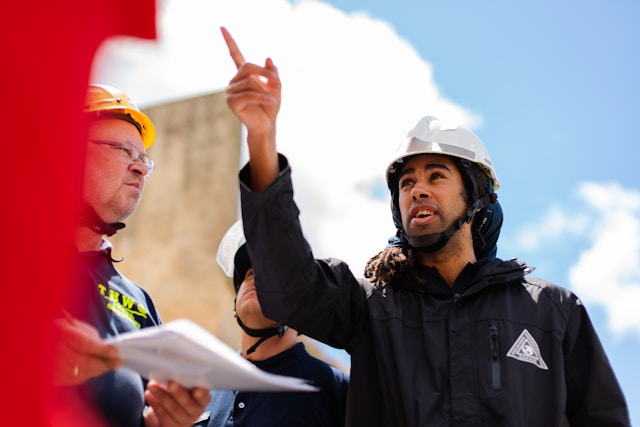Gas Engineer Training: A Pathway to a Rewarding Career
Gas engineer training is essential for anyone considering a career in the gas industry. As a gas engineer, you will be responsible for installing, maintaining, and repairing gas systems in residential, commercial, and industrial properties. This career offers job security, a competitive salary, and the opportunity to work with cutting-edge technology in a growing industry.
For anyone looking to enter the field, undergoing proper gas engineer training is crucial. This training equips individuals with the necessary skills and knowledge to work safely with gas systems, ensuring they meet legal and safety standards. The demand for qualified gas engineers continues to grow, making it a reliable career path.
The Importance of Gas Engineer Training
Gas engineer training provides aspiring professionals with the skills required to safely install and maintain gas systems. The training covers various topics, including gas safety regulations, fault detection, and the operation of gas appliances. Without adequate training, there can be serious safety risks associated with working with gas, making the right education vital.
What Does Gas Engineer Training Involve?
Gas engineer training involves a combination of classroom-based learning and hands-on practical experience. The theoretical part of the course covers topics like gas theory, heating systems, and pipework installation. Students also learn about different types of gas, such as natural gas and LPG (liquefied petroleum gas), and the safe handling of these substances.
Types of Gas Engineer Training Courses
There are different types of gas engineer training courses available, depending on the individual’s career goals and prior experience. For example, the Gas Safe Register is a legal requirement for engineers who work with gas appliances, and it is vital for new engineers to complete a course that enables them to register. This course covers essential gas safety regulations, installation procedures, and fault diagnosis.
Why Pursue Gas Engineer Training?
Pursuing gas engineer training offers several benefits. First and foremost, it opens the door to a secure and rewarding career in a high-demand industry. As gas systems are used in homes and businesses worldwide, the need for qualified gas engineers continues to rise. This creates ample job opportunities for trained professionals.
The Path to Becoming a Gas Engineer
To become a qualified gas engineer, individuals must complete a recognized training program. The path typically starts with enrolling in a gas engineer training course. After completing the theoretical and practical components of the course, students must pass exams to demonstrate their knowledge and competence in working with gas systems.
Skills Gained During Gas Engineer Training
Gas engineer training teaches a wide range of skills that are essential for success in the field. Technical skills such as pipework installation, appliance servicing, and fault diagnosis are central to the training. Engineers also learn about the different types of gas systems, such as central heating and hot water systems, and how to maintain and repair them.
Job Prospects After Completing Gas Engineer Training
Once you complete gas engineer training and gain the necessary certifications, you will be well-positioned to pursue various job opportunities in the gas industry. Gas engineers can work in a wide range of settings, including residential homes, commercial properties, and industrial sites. The demand for skilled gas engineers continues to increase, ensuring that there will be plenty of job prospects in the future.
Why Gas Engineer Training is Crucial for Safety
Working with gas systems requires careful attention to detail and a high level of expertise. Improperly installed or maintained gas systems can lead to dangerous situations, including gas leaks, explosions, or carbon monoxide poisoning. Gas engineer training is crucial to ensuring that professionals are capable of identifying and mitigating these risks.
The Growing Demand for Gas Engineers
The demand for gas engineers is steadily growing, driven by the widespread use of gas in homes and businesses. As the need for energy-efficient solutions and sustainable technologies increases, skilled gas engineers will play a vital role in implementing these systems. This growth in demand translates to job security and ample opportunities for trained professionals.
In addition to traditional roles, new technologies and innovations in the energy sector, such as renewable heating systems and energy-efficient appliances, are opening up new avenues for gas engineers. As the industry continues to evolve, gas engineer training will help professionals stay up to date with the latest trends and advancements.
Right Gas Engineer Training Program
When selecting a gas engineer training program, it’s essential to choose a course that is accredited and provides comprehensive, hands-on learning experiences. Look for programs that offer both theoretical instruction and practical training, allowing you to gain real-world experience. Additionally, consider the qualifications of the instructors and the reputation of the training center.
Conclusion:
In conclusion, gas engineer training is a valuable investment for anyone looking to build a rewarding career in the gas industry. With the right training, you’ll gain the technical expertise, safety knowledge, and practical experience needed to succeed in the field. As the demand for skilled professionals grows, now is the perfect time to pursue this career path. For those seeking top-quality training, Caledonia Training Centre offers comprehensive courses that prepare individuals for success in this thriving industry.














Post Comment